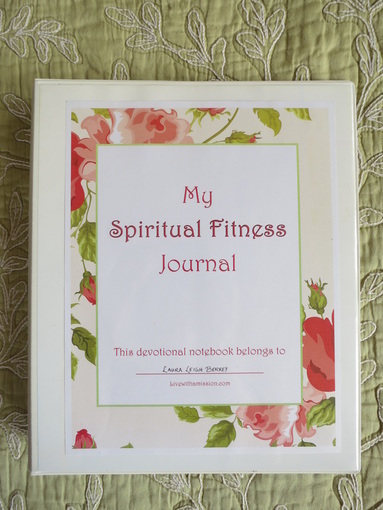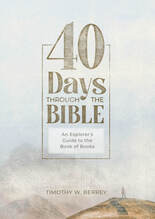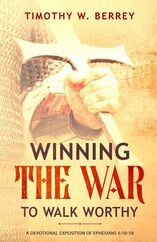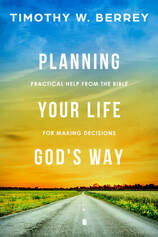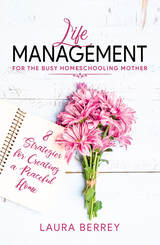|
To Satan, every day is April first, and every sinner is a fool. My husband and I are raising a brat. I'm not referring to my kids. I've made it a point not to call them names, except for pumpkin, goober-pea, peanut, pickle, cupcake, munchkin, and the occasional but necessary sweetie-pie. Anyway, people rear kids and raise animals, as you remember from your ninth-grade English lesson. No, I am referring to our white, pretty, noisy cat. We got her to be a mouser (since we are also raising lots of rats, but not on purpose). Kitty disdains that job. She likes her food delivered to her, at regular times, and if we have failed in our seemingly one and only job here on earth--that of keeping her well-fed--she turns into the brat cat. She stalks us from outside, jumping up onto window sills and meowing something terrible. You can actually hear the reproach in her voice as she scolds us. She has one other negative feature: she believes our house is hers and we have stolen it from her. The problem is, my husband is allergic to cats. (In the asthma-inducing way, not in the "I want to tie their tails together and throw them in the pond" kind of way). So we truly can't allow her to be indoors. But she comes in anyway. The moment someone opens the screen door, if they are not watching carefully, Kitty whisks herself inside and hides under the stairs in the back corner behind fourteen boxes of homeschool books. This especially happens around food time. One morning I groggily stumbled downstairs to make my coffee just as my husband was taking off for his early morning evangelistic Bible study at a nearby city park. Wanting to be a helpful wife, I stepped outside to shut the gate for him. Kitty was out there caterwauling for her breakfast, so I pulled the screen door closed and shut the gate. Then I turned around and didn't see her. She had somehow wormed her way inside. Ugh! There was no way I was crawling under the stairs after her when I hadn't even had my coffee yet. So I played a very nasty trick on her. I grabbed her plastic bucket of cat food and rattled it. Sure enough, within just a few seconds, she slithered out from her cozy place behind the homeschool boxes and came streaking through the door, reprimanding me for being so late with her food. I set the food bucket back on the shelf and went inside and pulled the door firmly shut. I didn't look out, but if I had, I know what I would have seen . . . A very befuddled white Kitty looking at her empty food plate. I poured my coffee and went upstairs, thinking about how that was exactly like some of the tricks Satan plays on us. There we are, cozy and warm, in our quiet place. Happy. Satan doesn't want us there, so he rattles the pleasures of sin, beckoning us. "Here, sinner-sinner-sinner. I've got some yummy stuff for you!" When we show up, the plate is empty and he is laughing maliciously. To Satan, every day is April first, and every sinner is the fool. What makes it worse is that he knows exactly what chains to yank.
He has been around for millennia and he has known us since we were born. Our besetting sins aren't hidden from him any more than Kitty's obsession with food is hidden from me. I will use it against her every time. And I am a kind, merciful person who loves her. (Sort of.) Satan is not kind or merciful. He hates us. His tricks are not well-meaning. He isn't trying to protect the person who has allergies. He is out to destroy us. "To Satan, every day is April first, and every sinner is a fool." Today, when you face his tricks, do it with wisdom. Pull out a verse, a specific word from God about that particular sin you seem to always give in to. Here are two possible passages to meditate on: Hebrews 11:24-26 By faith Moses, when he was come to years, refused to be called the son of Pharaoh's daughter; Choosing rather to suffer affliction with the people of God, than to enjoy the pleasures of sin for a season; Esteeming the reproach of Christ greater riches than the treasures in Egypt: for he had respect unto the recompense of the reward. James 1:14-17 But every man is tempted, when he is drawn away of his own lust, and enticed. Then when lust hath conceived, it bringeth forth sin: and sin, when it is finished, bringeth forth death. Do not err, my beloved brethren. Every good gift and every perfect gift is from above, and cometh down from the Father of lights, with whom is no variableness, neither shadow of turning. PS: To all you cat lovers out there, please don't write me angry emails; we did feed Kitty. That is my sons' job and they do it faithfully. Just not as early as she would like.
When making a decision, what are the best ways to let the Word of God shine light on your pathway? The (hopefully fictional) story is told of the man who was seeking God's will for his life. With all good intentions, he decided to open the Bible randomly and follow whatever instruction he found there. Closing his eyes, he allowed his Bible to fall open and placed his finger on the page. When he opened his eyes, he read, "And Judas went out and hanged himself." Eyes bulging with fear, he tried again, and this time his finger landed on the verse, "Go and do thou likewise." Trembling, he tried yet once more. "What thou doest, do thou quickly." This method of randomly opening the Scripture has been employed through the years by many well-meaning Christians. Unfortunately, when making a decision, it is not the best method of allowing the Word of God to guide you. The Bible does have the answers to your questions and can, indeed, aid you in making decisions! What are some correct methods for letting the Word of God shine light on your pathway? 5 ways to consult the scriptures when making decisions1. Start with clear commands of Scripture.
2. Study passages that relate specifically to your decision or circumstance.
3. Reflect on Biblical principles found in Scripture. Perhaps there is no clear command and you can't think of a single passage that relates specifically to your circumstances. Are there any general principles in Scripture that would relate to your dilemma? For example, I Corinthians 10:31 says that whether we eat or drink, or whatever we do, we should do it all to the glory of God. Let this principle guide you by asking yourself questions, such as:
4. Look for Biblical examples of people in life circumstances that are similar to yours.
5. Contemplate principles God is teaching you in your personal devotional time. God is sovereign over your Bible reading. He uses your life circumstances each day to more deeply embed the truths you read that morning into your heart. And He also uses the Scripture that you read to meet the needs of your day. Your personal time in the Word every day is a necessity. This article was adapted from the book Planning Your Life God's Way: Practical Help From the Bible for Making Decisions by Timothy Berrey.
What Biblical truths enable us to worship and praise God during times of great personal suffering? Imagine if you were wealthy beyond measure. You had a delightful family, with many children. And then, suddenly, disaster struck. Your wealth was stolen and destroyed. Your children were all killed. . . You received notice of this tragedy all in one day, as one after another of your stocks and bonds nose-dived, your houses collapsed, and your children died from a natural disaster that could only have come from God. Would you say with Job, "Why does God make me keep on living? I long for death, but can't find it. Why is light given to a man whose way is hid, and whom God hath hedged in?" (Job 3:23) Hedged in. Fenced in. Covered over. Shut up. Entwined as in a net. Would you feel this way about your life? That the Almighty One is shutting you up as in a jail cell, covering you up with miseries one upon another? Would you wish for death? And is Job right in saying the Almighty has fenced him in? After all, that sounds harsh. Imagine the God you serve--and Job knows his own righteousness before God, although he admits that even he has sinned and committed transgressions--imagine that God imprisoning you in tragedies as in a cell. Has God truly hedged Job in? Ah. . . The irony. The great, successful irony of the book of Job. If we were to take out the first two chapters of the book, we would be irate because we wouldn't understand the layers of meaning in this story. But we had just read, a few chapters before, Satan's own words to God: "Does Job fear God for no reason? Have you not put a hedge around him and his house and all that he has, on every side? You have blessed the work of his hands, and his possessions have increased in the land." (Job 1:10) Satan accuses God of favoritism. Of "hedging" Job in. Of fencing in not only Job, but all his house, and all his wealth. All the houses and wealth that God Himself had given Job. And guess what? God doesn't deny it. He, in fact, adjusts the fence, thus proving that there is a fence; there is an actual hedge. He moves the boundary line. He tightens it a little, adjusts it to fit Job only. There is still a fence. Job was right about that. He just didn't understand the nature of the hedge. But Satan does. "Go ahead," God says to Satan. "Do what you want to his possessions. Only don't touch Job himself." What Job doesn't know is about to hurt him. What Job doesn't know is that God Himself, the Almighty One, is using him as an example of righteousness. For Satan, for the angels, for the readers of this inspired, preserved Book for ever and ever to come. For you. For me. Job doesn’t know his pain is a direct result of his righteousness. So Job suffers greatly. And then, to complicate matters, God moves the fence again. Satan comes back from walking to and fro upon the earth, prowling, stalking the righteous. Meddling where he is able. Seeking whom he may devour. And God points Job out to him again. "See that man? You said he would curse me to my face. Where are his curses?" Does God know that Satan will ask for a smaller fence? Surely. He is the all-knowing One. Satan, predictably destructive, does: "Let me touch his body. He will curse you to your face." God: "Go ahead, but spare his life." The fence tightens even more. So now Job is sitting in the ashes, scraping his boils with old shards of pottery. Lots of time on his hands to think. No wealth to oversee. No children to email. Even his relationship with his wife seems strained. He starts thinking about all God has done to him. Wait. . . Has God done this terrible thing? We as readers are torn. We know it was Satan. Yet, God provoked Satan to ask for this. We know God's sovereignty; we just saw it in action as He moved the fence once, twice, and as He grants permission for Satan to afflict Job. The obvious conclusion is that Satan needs permission from God. He can't touch Job without it. The players in the book all know this too. At least, they sense it somehow. The servant says, "The fire of God fell from heaven and burned up the sheep." Job says, "The Lord gave and the Lord has taken away." Satan says to God, "Stretch out Your hand and touch his bone and his flesh and he will curse You to Your face." And even God Himself says to Satan, "You incited me against him to destroy him without reason." Everyone in the story agrees that God is responsible for all of this. Even though Satan is the one who wreaks the havoc in Job's life. God is responsible for the hedges in our lives. And He is responsible when they are shifted. Do we rejoice and take comfort in that during times of personal suffering? Questions to think about from this story of Job:
This Spiritual Fitness Journal has been one of the most valuable tools I have found in my quest to know God through my devotional time over the last couple of years. How to Use the Spiritual Fitness JournalThere are three parts to this Spiritual Fitness Journal: 1. Planning for Spiritual Fitness — In this section you can keep your Bible Reading calendar (you can print one from the internet: many websites offer various plans). It is a wonderful thing if you can read through your Bible each year. But you have to plan for that! It has to be a priority in your life. My suggestion is to make your devotional time the first activity in your day. You can also include a personal prayer journal in this section or three-hole punch your church prayer sheet. 2. Knowing My God — In this section are pages for you to fill out as you read through your Bible daily. You are learning about who He is. You can choose the qualities or characteristics of God that you want to focus on. Examples of titles for your pages could be, “My God IS LOVE,” “My God IS MERCIFUL,” “My God HATES SIN,” or “My God is SOVEREIGN OVER NATURE.” 3. Knowing What My God Wants – In this section are more pages for you to fill out as you read through your Bible daily. This is another way of learning about God. You are learning about what He wants. Some examples of titles for your pages could be, “My God wants me OBEY HIS COMMANDMENTS,” “My God wants me to FOLLOW HIM,” “My God wants me to LOVE OTHERS,” “My God wants me to FEAR ONLY HIM.” Using your Spiritual Fitness Journal is a way to become Spiritually Fit as you consume His Word, applying it to your life through meditation. As you fill out these pages and add more (you can reproduce these pages for yourself), you will find that your notebook will become filled with your knowledge about God. As you struggle with fear, for instance, you can apply God’s Word to your life by reading through all the Bible verses on the page you have titled: “My God wants me to FEAR ONLY HIM.” If you have filled out pages about “My God is SOVEREIGN OVER NATURE” or “My God SUPPLIES ALL MY NEEDS” or “My God IS MY DEFENDER,” you can apply those verses also to the problem of fear. This notebook will not only bless you and help you to grow spiritually, but can also be your tool as the Lord helps you to feed others His Word and to become a “Spiritual Fitness Coach” to others around you. My own life has been transformed as I have used this notebook. I pray yours will be also. May God bless you and use you in the place He has put you! If you choose to use this notebook, I would love to hear if it has been a blessing to you. Do you want to know more?
If you want to read more about this type of devotional notebook, I derived the idea from the excellent book, What Do I Know About My God? by Mardi Collier. I highly recommend that you read her book. Are you failing to meet your goals because of a long list of excuses? This one simple mental adjustment will help you to banish excuses and accomplish your goals. Excuses, Excuses
My Exercise Excuse Script Laura to self: I need to go jogging. Internal Excuse Maker: Experts say you only have to do that 3-4 times a week in order to see results. Do it tomorrow. Laura: You said that yesterday, and the day before. I'm running out of days in the week. IEM: Well, it's looking kind of overcast out there. It might rain. And you wear glasses without windshield wipers, so when it rains, you can't see. What if you step in a pothole? You have children to care for. You shouldn't do that to your family. Better stay home today. Laura: Yes, I have children to care for and I want to be alive to see them grow up, so I'd better go today. IEM: Speaking of which, they are probably going to wake up from their nap any minute. You probably don't have time to go jogging. Laura: Well, then, I'd better go now, huh? IEM: Remember the dog? He followed you up the street the last time, barking ferociously. You were terrified and if that nice man hadn't chased him off, you might be in the hospital right now recovering from rabies shots. Laura: But maybe he won't be there today. Maybe I can carry a stick. IEM: That will look cool. Go ahead. Do that. And then those construction workers will really stare when you jog past. Laura: I'll take a different route to avoid the construction site. IEM: Oh, and don't forget: your shoes are at the repair man, getting glued back together because they are five years old and falling apart. Laura: Aack! I forgot about that. IEM: So, see, you can't go. Told you so. It's called ego depletion. After arguing long enough with your Internal Excuse Maker, you run out of mental energy to make the right choice (exercise) and decide instead to raid the freezer for a Dove Dark Chocolate Bar and drink a coffee or two. At least that's what happens to me. My No Excuse Policy Something had to give, if I was ever going to succeed at my exercise goal. So I decided I would turn the excuse script off. Instead of listening to my obnoxious Internal Excuse Maker, I instituted a personal No Excuse Policy. I decided that I would not tolerate ANY excuses at all when it comes to exercise. With my new policy, the Exercise Excuse Script doesn't even start running. You and I both know which excuses truly are valid. All the rest are just a version of the "lion in the street" and should be sternly banned. What are your goals for this year? Did you want to read through your Bible in a year, start a new exercise program, pay down a debt, or finally pursue a long-standing dream of yours? More importantly, what spiritual task has God asked you to do for His kingdom that you haven't even started doing yet because of your Internal Excuse Maker? Are you allowing your Internal Excuse Maker to run roughshod over you? Or have you found a way to turn off the Excuse Script? Maybe you--like me--need a No Excuse Policy. My new policy has enabled me to exercise six days a week (except when truly valid excuses come up, like sickness), and now exercising has become something I actually look forward to every day. Imagine if succeeding at your goals became that fun? Oh, and by the way, that day that my shoes were in the shop? I borrowed my son's sneakers. They fit great and are much newer and cushier than mine. My IEM flipped out, but I jogged on air, not pavement, that day. Try this one simple thing. Institute a No Excuse Policy for just one of your goals today. Silence your IEM and start jogging on air. PS--If you haven't yet formed a habit of reading the Word of God daily, may I personally encourage you to make that area your first venture into a No Excuse Policy? You will be amazed, as I have been, by the way the Lord personalizes your Bible reading to the challenges you face throughout your day.
Ephesians 5:22-33 describes the beauty of modeling Christ through marriage.
If you are like many people, you made a list of New Year's Resolutions at the beginning of January. How's that going? Many of our resolutions are doomed to fail. 88%, in fact, if Wikipedia is correct. We can try really hard to come up with ways to succeed . . .
All of these things can help. But there one thing you cannot accomplish goals without: discipline. I can have all the desire in the world to complete a marathon, but unless I lace up my sneakers and actually hit the jogging trail, I'm doomed to failure. You may desire a healthy body, but unless you exercise faithfully and eat properly, you are doomed to failure. Discipline, not desire, determines destiny.* My husband says that often. But he doesn't just talk it; he walks it. I should know. . . I live with the man. Discipline gets him up in the morning to read his Bible. Daily. Discipline aids him in reading the Bible aloud to his family every morning at breakfast. Discipline sits him at his desk in a pool of tropical sweat so he can study for sermons and classes. Discipline requires him to reject fried chicken and eat its bland counterparts instead. Discipline allows him to sigh instead of rant when a careless child breaks a window pane. Discipline. Discipline. Discipline. I tilt my head to one side and watch him. I was not born a naturally self-disciplined person. So I observe and learn from him. Since being married to him I have radically increased in my own self-discipline. This is all the Lord, actually. All grace. But I am amazed at what the example of one man has done in my life. And my children's lives. Because they are watching us, those little people that cling to our skirts and wipe their runny noses on our suit coats. They watch us and learn. From some of us they learn that church attendance is negotiable and that the Bible is the book to search for and dust off on a Sunday go-to-meeting morning. From some of us, I hope, they learn that the Bible is the treasure of our lives. To be delved into and lived by. To swim in and to drink up. Maybe you have a goal to read your Bible this year. Maybe you want to read it all the way through. Or maybe your goal is just to read it daily. Maybe you have already failed in your goal, not because of a lack of desire, but because of a lack of discipline. Well, get up. Dust off your knees. A just man falleth seven times and riseth up again. (Proverbs 24:16) So don't stay where you fell. Rise up again. Start fresh. Today is a new day. So it's a new chance. God's mercies are new every morning. And all around you, there are people watching and learning from you. So live a lifestyle of discipline. Because discipline--not desire--determines destiny. Other helps on this topic: Do you need a Bible Reading Plan? It's not too late for you to read through your Bible this year! If that is one of your goals, don't give up. Try out one of these six Bible reading plans. Have you made goals for this year? If not, it's never too late to make some. These goal planning worksheets can help you in your endeavor. Are you determined to follow through on your resolutions or goals for this year? Read this article by Michael Hyatt on How To Make New Year's Resolutions Stick. *It is often hard to nail down the origin of quotes. I don't know who said this first, but he was wise.
How do you teach a not-yet-reader to love the Word of God? In addition to reading the Bible to them from a young age, here are 5 other ways. 5 WAYS TO TEACH YOUNG CHILDREN TO LOVE THE WORD OF GOD1. Listen to the Bible on CD. (Or, in this day and age, you can stream it.)
When I was a child, my father often had tapes of the Bible playing in our house. Even before I could read, I loved the intonation of the words of the Bible as read by Alexander Scourby. This year one of my goals is, whenever possible, to have my children go to sleep listening to the Bible on CD. My children really enjoy this. 2. Read Bible Stories to Them. I remember in vivid detail the night I asked Jesus to save me from my sins. I was about four years old, and we had read the story of Christ's death on the cross during our family devotional time. Every time I think of that night, I think of the picture of Jesus on the cross from the Bible story book we read. The Bible in Pictures for Little Eyes is still one of my favorite Bible story books for little children and we use it for devotional times with our little ones. My children have loved that particular book so much that we have gone through 4 or 5 copies of it. It is hard to find now; the publisher has updated it with cartoon-like pictures, which is a real shame because the original pictures are stunning. I highly recommend the original book for children ages 1-6. 3. Teach them Bible songs. We had a favorite song we sang to each of our babies when we put them down to bed. In addition, with our twins, David and Daniel, we started singing "Only a Boy Named David" and "Dare to Be a Daniel" to them before they were even born. Do you teach your children songs at a young age? Here are some great ones to use:
4. Memorize, Memorize, Memorize. The early years are "parrot" years. Little children are like sponges and they love to memorize. The verses you teach your toddlers will stick in their minds for years to come. In kindergarten, my class memorized a major portion of Hebrews 11 and to this day I retain most of those verses in my long-term memory. Don't underestimate the ability of even very young children to memorize. A 2- or 3-year-old child can memorize whole passages of Scripture. Memorizing is fun for small children. 5. Set a good example. Let them see you reading your Bible in the mornings. They will automatically pick up on your love for it. Instill a respect in them for your devotional time. When my young ones wake up early and interrupt my Bible time, I try to remind them that this is Mama's most important time of the day because I am learning about God. In addition, my little ones watch the older children read the Word of God in the early mornings. Your children innately know what is important to you and it shapes their own worldview. These are just five of many ways to teach young children to love the Word of God. If we want them to learn while they are still young to let the Word of God dwell in them richly, we must be intentional with our parenting. Of course, we should always remember that the end goal is to teach them to love the God of the Word. It is through the Word of God that they will come to know, trust, and worship Him. What do you do to teach your children to love the Bible at a young age? If you are longing to experience the full beauty of the Biblical metanarrative, try a 90 Day Bible Reading Plan. Here are some of the pros and cons. On New Year's night, exhausted from watching the unbelievable fireworks here in Metro Manila on New Years Eve, I put the kids down early for bed and picked up Women of the Word, a book I was borrowing from a friend. Unable to put it down, I finished the book within a couple of hours. In it, author Jen Wilkin mentions the idea of studying the Bible with perspective: understanding where each passage fits in the Biblical metanarrative. I was drawn to the idea of firming up my own memory of the Biblical timeline by doing a quick read-through of the entire Bible. (Many years and six children have occurred since my graduate school Bible classes.) Because of this, I started the New Year with a prayer that God would show me what to do in my devotions this year. After I prayed about this, my husband came into the room to tell me that he had purchased a 90 Day Bible for Kindle. I was immediately struck with the idea that this was probably the Lord's answer to my prayer. So he shot it to my Kindle, and this is the plan I am currently using in my devotional time. Timmy, my 11-year-old, also wanted to use this plan. (This blesses a Mama's heart!) And I have a dear friend who is planning to do a similar plan. So there are three of us doing this and we plan to hold each other accountable. The Pros and Cons of a 90 Day Bible Reading PlanWhat are the pros and cons of a 90 Day Bible Reading Plan?
Do you want a plan for reading through your Bible this year? Here are six different options. Shortly after we were married, I horrified my husband with my free-spirited approach to reading the Bible. "What did you read in your devotions today?" he asked one morning. "I finished Romans," I told him. We had a great conversation about what we had read and learned. The next day, he asked again: "What did you read in your Bible this morning?" "I started Jeremiah," I replied, cheerfully. Stunned silence. My husband cannot fathom a person who reads their Bible out of order. Each and every year, since I have known him, he has read through his Bible. In order. Genesis to Revelation. Or maybe Chronological order. Or one of those plans where you read a passage from the Old Testament and one from the New Testament. He has read the McCheyne Bible Reading Plan. Twice he has read the Greek New Testament. He even spent one year reading the Amplified Bible. (He jokes that he read his Bible one and a half times that year.) But never since he has been a grown man has he considered bouncing around the Bible randomly. Me? I was the ball in the pinball machine. Now, please don't misunderstand. I loved reading my Bible. I read it faithfully. I just didn't love reading Jeremiah and Ezekiel back to back. Or Leviticus and Numbers. I liked breaking it up by reading something else in order to keep on swimming through. Catch a breather in the Psalms, for instance. Then hold my nose and dive back into the deep end of the major prophets. So for several years he looked at me with fond discomfort in his eyes when I shared with him my unconventional devotional tactics. He was very glad I was reading my Bible, of course. Just a little perturbed about my way of doing it. But then something happened. One year, I finally decided to join those faithful souls who systematically read through their entire Bible in one year. With a plan. The result? I fell deeper in love with my Bible. I saw new vistas. I noticed new details. I made new connections. There is an amazing blessing to reading through the Bible systematically. This new way of reading my Bible initiated a time of real spiritual growth growth in my life. In fact, I have been so blessed by the results of reading through my Bible in a year, in a systematic way, that I now wholeheartedly encourage others to do the same thing. It is a wonderful thing. If you haven't tried it yet, you absolutely should start doing it right now. Here are five different options for Bible Reading Plans:
That gives us six different options for using a plan to read through our Bibles this year. If none of these six options suit you, pick a different plan. Search the internet. There are literally dozens of options. If you have a favorite reading plan that I did not include, please do us all a favor and link to it in the comments below! Whatever the case, let the Word of Christ dwell in you richly this year. PS--In my next post I will share which of these reading plans I am using this year that I am really excited about.
|
Tim and LauraTimothy and Laura Berrey are missionaries with Gospel Fellowship Association. They share a passion for missions which has taken them to several countries in Africa, Asia, and Europe. They currently minister in the Philippines. Want articles like this delivered to your inbox?
Categories
All
We send out occasional updates about recently published articles and books. To receive these updates, please subscribe to our newsletter. |





